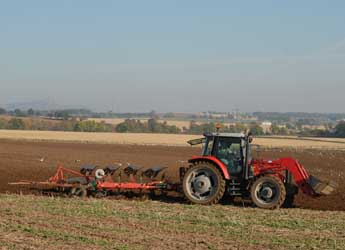
Climate Change and Agriculture in Scotland
The Scottish Environment and Climate Change Minister, Stewart Stevenson MSP, has opened a day-long workshop in Edinburgh on the impact of climate change on agriculture.
The event was organised by The James Hutton Institute, on behalf of the Scottish Government and had input from all the Scottish research institutes.
Mr Stevenson told more than 60 delegates that the Government was committed to continuing to support a science base that is multidisciplinary and integrated – while retaining the depth in disciplines where Scotland had international excellence.
Addressing the meeting he said: "Scotland’s long term success depends on action on climate – a policy based on very rigorous evidence. So much so that we have included a new Strategic Priority for Scotland in the Government Economic Strategy published last month: the Transition to a Low Carbon Economy.
"That priority is highly relevant to agriculture...Scotland has a massive competitive advantage with the natural resources, and academic and engineering expertise to become a world leader in low-carbon activities.
"To really capitalise on that, we need to unlock the huge potential that is available to us: to ensure that there is an effective knowledge exchange between science and policy communities.
"The strategic direction of our research means that we are continuing to build a science base that is multidisciplinary and integrated – while retaining the depth in disciplines where we have international excellence. We are justifiably proud of this Government’s track record in providing research support for rural and environmental science."
Among the audience were policy officials from the Scottish and UK Governments, scientists and representatives from food and farming bodies including the National Farmers Union Scotland. There were also delegates from Wales and Northern Ireland at the event, which was hosted by the Royal Botanic Garden Edinburgh.
Published on 07 October 2011 in Climate, water and energy
Topics
- Climate, water and energy
- Ecosystems and biodiversity
- Food, health and wellbeing
- Sustainability and Communities







